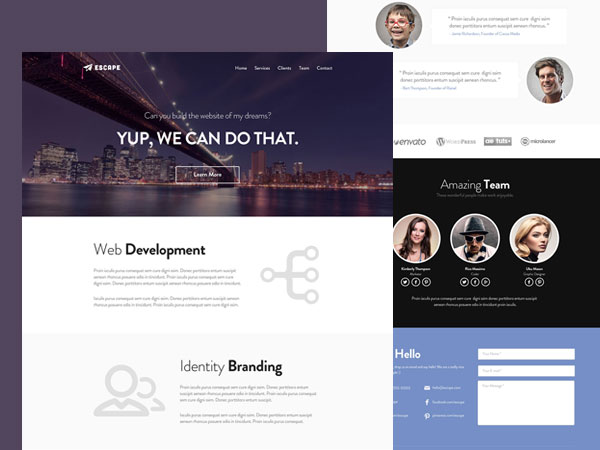Call for Papers
The full-day workshop on Oct 21, 2022 will include the following three parts:
Submissions of research papers must be in English, in PDF format, and be at most 2-4 pages (including figures, tables, proofs, appendixes, acknowledgments, and any content except references) in length, with unrestricted space for references, in the current ACM two-column conference format. Suitable LaTeX, Word, and Overleaf templates are available from the ACM Website (use “sigconf” proceedings template for LaTeX and the Interim Template for Word).
Submissions must be anonymous and should be submitted electronically via EasyChair:
https://easychair.org/conferences/?conf=hildc2022
At least one author of each accepted paper for part 2 of the workshop is required to register for, and present the work at the workshop.
Best papers will be invited to submit an extended version to a special issue of the ACM Journal of Data and Information Quality to be published in Q3 2023.
- Part 1 features plenary sessions, including the keynotes, invited talks, and panel.
- Part 2 features selected presentations from speakers whose papers are peer-reviewed and who attend in person.
- Part 3 features lightning talks for extended abstracts that are not formally peer-reviewed.
- Quality control for crowdsourced data curation
- Data worker incentivization and engagement, including techniques from citizen science and collective intelligence
- Expertise finding and engagement for data curation
- Supporting crowd workers and experts in data task completion
- Supporting data curation task design for data requesters
- Collaborative data work among humans and between humans and AI
- Human studies into the transparency, reliability, and biases in manual and hybrid data curation
- Interaction techniques for manual, collaborative, and hybrid human-machine data curation, eg.., conversational interfaces
- Database and machine learning techniques for supporting large-scale and hybrid data curation
- Human intervention in data cascades and machine learning lifecycle management
- Benchmarks in machine learning, AI, and related areas
- Privacy and security issues of data quality, e.g., data poisoning attacks
Submissions of research papers must be in English, in PDF format, and be at most 2-4 pages (including figures, tables, proofs, appendixes, acknowledgments, and any content except references) in length, with unrestricted space for references, in the current ACM two-column conference format. Suitable LaTeX, Word, and Overleaf templates are available from the ACM Website (use “sigconf” proceedings template for LaTeX and the Interim Template for Word).
Submissions must be anonymous and should be submitted electronically via EasyChair:
https://easychair.org/conferences/?conf=hildc2022
At least one author of each accepted paper for part 2 of the workshop is required to register for, and present the work at the workshop.
Best papers will be invited to submit an extended version to a special issue of the ACM Journal of Data and Information Quality to be published in Q3 2023.
Important Dates
Important dates (23:59 Anywhere on Earth):
- August 15, 2022: Paper submission deadline
- September 15, 2022: Paper acceptance notification
October 15, 2022: Final paper submission- October 21, 2022: Full-day workshop at CIKM 2022
- November 4, 2022: Final paper submission
- Submission deadline: February 2023
- First-round review decisions: June 2023
- Deadline for revision submissions: August 2023
- Notification of final decisions: October 2023
- Camera-ready Manuscript: November 2023
- Tentative publication: December 2023
Proceedings
Proceedings are online: https://dblp.org/db/conf/cikm/cikm2022w.html.
Program
NB. Each accepted paper has 10 minutes for presentation, and 5 more minutes for
questions.
Each lightening talk is 5 minutes, and 3 more minutes for questions.
Each lightening talk is 5 minutes, and 3 more minutes for questions.
| Time | Activity | Title |
|---|---|---|
| 09.00-09.10 | Welcome and Opening | |
| 09.10-10.00 | Keynote 1 - Abraham Bernstein: Towards a Collaboration between Humans and Machines for Data Curation and Analysis | |
| 10.00-10.30 | Break | |
| 10.30-11.30 | Keynote 2 - Ujwal Gadiraju: Human-Centered AI: A Crowd Computing Perspective | |
| 11.30-12.15 | Session 1: Methods | Brendan Coon. HITL IRL: 12 Reflections on Expertise Finding and Engagement for a Large Data Curation Team |
| (lightening) Stephanie Eckman, Jacob Beck, Rob Chew and Frauke Kreuter. Improving Labeling Through Social Science Insights | ||
| (lightening) Sepideh Nikookar. Human-AI Complex Task Planning | ||
| Subhadip Paul, Anirban Chatterjee, Binay Gupta and Kunal Banerjee. Developing a Noise-Aware AI System for Change Risk Assessment with Minimal Human Intervention | ||
| 12.15-14.00 | Break | |
| 14.00-14.55 | Session 2: NLP | (lightening) Shubhanshu Mishra and Jana Diesner. PyTAIL: Interactive and Incremental Learning of NLP Models with Human in the Loop for Online Data |
| Baihan Lin. Knowledge Management System with NLP-Assisted Annotations: A Brief Survey and Outlook | ||
| (lightening) Sara Pidò and Pietro Pinoli. A Paradigm to Put Back the User into the AutoML Loop through Natural Language | ||
| Deepa Muralidhar and Ashwin Ashok. Creating a framework for a Benchmark Religion Dataset | ||
| (lightening) Bipasha Banerjee, Palakh Mignonne Jude, William A. Ingram, Kurt Luther and Edward A. Fox. Help Me Help You - A Mixed-Initiative Approach To Explore Book-length Documents | ||
| 15.00-15.55 | Session 3: Multimedia | Meghana Deodhar, Xiao Ma, Yixin Cai, Alex Koes, Jilin Chen and Alex Beutel. A Human-ML Collaboration Framework for Improving Video Content Reviews |
| Kameswara Mantha, Ramanakumar Sankar, Yuping Zheng, Lucy Fortson, Thomas Pengo, Douglas Mashek, Mark Sanders, Trace Christensen, Jeffrey Salisbury, Laura Trouille, Jarrett Byrnes, Isaac Rosenthal, Henry Housekeeper and Kyle Cavanaugh. From Fat Deposits to Floating Forests: Cross-Domain Transfer Learning using PatchGAN-based Segmentation Model | ||
| Edwin Gamboa, Jose Alejandro Libreros Montaño, Dan Dubiner and Matthias Hirth. Human-AI Collaboration for Improving the Identification of Cars for Autonomous Driving | ||
| (lightening) Paola Santana-Morales, Antonio J. Tallón-Ballesteros, Tengyue Li and Simon Fong. Triple Attribute Subset Selection Metaheuristic for Multi-class High-dimensionality Problems | ||
| 15.55-16.05 | Closing | |
| 16.30 | End | |
Program Committee
Organizers
Send an email to j.yang-3[at]tudelft.nl for questions.

Gianluca Demartini
The University of Queensland, Australia

Shazia Sadiq
The University of Queensland, Australia

Jie Yang
Delft University of Technology, Netherlands




